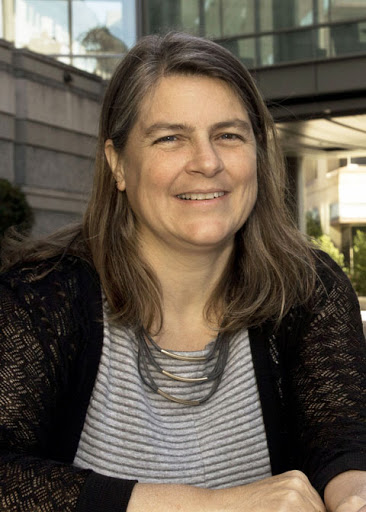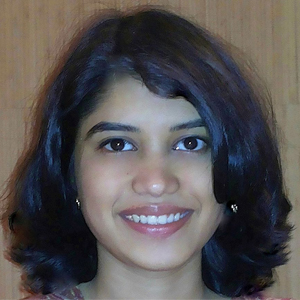Corbett goes the extra mile
to support young scientists
Anita Corbett understands firsthand how early influences can shape a young scientist’s career path. A high school chemistry teacher named Mrs. Broadway encouraged Corbett’s interest.

“I liked science and was good at it, but that was about it,” she said. “However, she saw something special in me that I didn’t. She appointed me as the captain of Science Bowl team and encouraged me to develop my leadership skills and scientific acumen.”
As an undergrad at Colgate University, Corbett said, her conversations with Roger Rowlett helped her develop as a researcher and science advocate. “I was one of Roger’s earliest trainees and loved working in his lab. He had confidence in my abilities and was such a positive influence.”
While pursuing her Ph.D. in Neil Osheroff’s lab at Vanderbilt University, Corbett learned to love teaching and mentoring. “His lab welcomed many undergraduate researchers,” she said, “and I gained a lot of experience through training and mentoring people from different walks of life.”
In 2003, Corbett was the first woman to receive tenure in the department of biochemistry at Emory University School of Medicine. She is now a professor in the biology department and co-director of several prominent programs at Emory University.
Corbett is passionate about increasing diversity and inclusion in science and goes the extra mile to support the career development of young scientists. She nominated the recipient of the 2019 ASBMB Young Investigator Award, Christine Dunham.
“When shortlisting seminar speakers at Emory University, I focus on inviting junior faculty, particularly women, whose careers would benefit from another invitation on their CV,” she said.
Corbett describes the research in her lab as “model system fluid” because high school students, undergraduates, graduate students and postdoctoral fellows with expertise in various model organisms all collaborate on certain projects.
After 23 years as a professor, Corbett has this advice: “Always pursue an area of work that fulfills you; don’t shy away from asking for help when required; and always, always help your fellow researchers. The rest will follow through.”
Unraveling human diseases with systems biology research
Anita Corbett’s research group focuses on understanding the molecular basis for diseases, particularly how missense mutations in proteins lead to distinct disease phenotypes.
Studies have shown that mutations in multiple genes encoding structural RNA exosome subunits are linked to disease. In one project, following a successful collaboration with clinicians, the Corbett group was the first to link mutations in a gene encoding one particular subunit of the RNA exosome, EXOSC5, to clinical outcomes (developmental delays, cerebellar hypoplasia and motor weakness).
In a recent study, the Corbett group collaborated to combine various genetic models, including budding yeast and zebrafish, as well as biochemical techniques to characterize how changes in the protein found in people with EXOSC5 mutations ultimately affected the function of the RNA exosome complex.
As the RNA exosome subunits are expressed ubiquitously in every cell, so are the pathogenic variants. Thus, the lab also further determines the requirement for the RNA exosome in specific tissues/cell types and provides insight into how defects in RNA exosome function contribute to specific clinical manifestations.
ASBMB Mid-Career Leadership Award
Anita Corbett is the inaugural recipient of the ASBMB Mid-Career Leadership Award recognizing an individual at the full professor or senior scientist level with a strong commitment to advancing the careers of women in biochemistry and molecular biology along with demonstrated excellence in research, discovery and/or service. Due to the cancellation of the 2020 ASBMB Annual Meeting, this award will be presented at the 2021 ASBMB Annual Meeting in Indianapolis.
Enjoy reading ASBMB Today?
Become a member to receive the print edition four times a year and the digital edition monthly.
Learn moreFeatured jobs
from the ASBMB career center
Get the latest from ASBMB Today
Enter your email address, and we’ll send you a weekly email with recent articles, interviews and more.
Latest in People
People highlights or most popular articles

Decoding how bacteria flip host’s molecular switches
Kim Orth will receive the Earl and Thressa Stadtman Distinguished Scientists Award at the ASBMB Annual Meeting, March 7–10, just outside of Washington, D.C.

Thiam elected to EMBO
He was recognized during the EMBO Members’ Meeting in Heidelberg, Germany, in October.

The timekeepers of proteostasis
Learn about the cover of the winter 2026 ASBMB Today issue, illustrated by ASBMB member Megan Mitchem.

Defining JNKs: Targets for drug discovery
Roger Davis will receive the Bert and Natalie Vallee Award in Biomedical Science at the ASBMB Annual Meeting, March 7–10, just outside of Washington, D.C.

Building better tools to decipher the lipidome
Chemical engineer–turned–biophysicist Matthew Mitsche uses curiosity, coding and creativity to tackle lipid biology, uncovering PNPLA3’s role in fatty liver disease and advancing mass spectrometry tools for studying complex lipid systems.

Summer research spotlight
The 2025 Undergraduate Research Award recipients share results and insights from their lab experiences.

